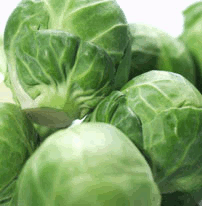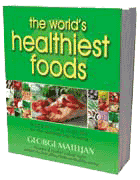Allergic reactions in asthmatics
Do additives and preservatives in foods cause allergic reactions such as asthma?
Yes, additives and preservatives in foods can cause allergic reactions in persons who are sensitive to these synthetic food components. The triggering of allergic reactions by food additives and preservatives is very well documented in scientific research studies. (We've included a list of several representative studies below).
Although the best approach to these additives is to simply avoid them whenever possible, avoiding them 100% of the time can be difficult given their prevalence in most processed food. And it can be difficult to determine whether you are sensitive to a food additive or not. In some cases, a person will have an immediate and dramatic reaction to a food additive, even in a very small amount. An immediate skin rash may result, or an immediate difficulty in breathing may take place. But for many people, an adverse reaction to a food additive could be much slower to take place, and more mild in intensity. Sometimes the reaction is basically "hidden," and can come in the form of simple fatigue or lack of alertness, or just feeling "crummy." Because there are so many different factors that can contribute to these less dramatic but still unhealthy reactions, it can be difficult to determine whether food additives are responsible or whether some other factors are more important. You may want to look over the Allergy Avoidance Diet section on our website for more information in this area.
Sulfites are one good example of a food additive that can cause allergic reaction.
Here is some copy from George Mateljan's new book "The World's Healthiest Foods: Essential Guide for the Healthiest Way of Eating" about this subject:
"Sulfur-containing compounds (sulfites) are among the most frequently used preservatives in the U.S. food supply. Sulfites are used to extend the shelf life of dried fruits, wines, shellfish, and many processed foods through their ability to prevent oxidation, reduce discoloration, and inhibit bacterial growth.
Unfortunately, many people cannot "tolerate" sulfites. It has been estimated that sulfites cause adverse reactions in an estimated one out of every 100 people, who turn out to be sulfite sensitive. These reactions can be particularly acute for those who suffer from asthma; the U.S. Food and Drug Administration estimates that 5 percent of asthmatics may experience a reaction when exposed to sulfites.
The following is a list of The World's Healthiest Foods that may contain sulfites. Please notice that for some of the foods, only specific preparations contain these sulfur-containing preservatives.
Dried apricots, dried apples and other dried versions of the World's Healthiest Fruits
Grapes - as well as wine made from grapes
Lemons - bottled lemon juice
Potatoes - dehydrated and peeled raw potatoes
Shrimp
Scallops
Cod (dried)
Wheat - processed baked goods (may be used in dough conditioners)
How to Avoid Sulfites
As note above, sulfites are not allowed to be used in organic foods. Therefore, if you want to avoid sulfites, purchase organic food as much as possible, especially when it comes to foods listed above and packaged, processed foods.
There are some foods for which the sulfite-free version appears different than the one containing sulfites, owing to the nature of the preservative. Dried apricots are one example. While sulfite-free apricots may not have the bright colors of those to which sulfites have been applied, they are a much healthier choice for sulfite-sensitive individuals.
If you purchase foods that are not organically grown/produced, you will want to be especially diligent about reading packaged food labels in order to be able to identify whether they contain sulfites. The following are the names of sulfite-containing preservatives as they may appear on the label:
Sulfur dioxide
Sodium sulfite
Sodium bisulfute
Potassium bisulfite
Sodium metabisulfite
Potassium metabisulfate
While preservatives need to be declared on the label, there are some foods that are exempt from labeling laws. If you have questions about specific products, contact the manufacturer."
In addition, as we note in our article on asthma (http://www.whfoods.com/genpage.php?tname=disease&dbid=12), " .many asthma patients have been shown to react to artificial food additives or preservatives, such as MSG (monosodium glutamate), yellow dye #5 (tartrazine), and sulfites. Eating these chemicals in processed foods may trigger asthma attacks."
As you can see, the issue of food additives and allergic reaction is not a simple one. If you cannot completely avoid these substances in your meal plan, and you suspect a possible adverse reaction to them, we encourage you to consult with an allergist, nutritionist, or other healthcare practitioner who has extensive experience with food allergy and can help you determine the best steps for you to take.
For more information on this topic, see:
References:
Aba-Alkhail BA, El-Gamal FM. Prevalence of Food Allergy in Asthmatic Patients. Saudi Med J. 2000;21(1): 81-7.
Arai Y, Sano Y, Ito K, et al. Arerugi. 1998;47(7):658-66..
Boris M, Mandel FS. Foods and Additives Are Common Causes of the Attention Deficit Hyperactive Disorder in Children. Ann Allergy. 1994;72(5):462-8.
Felder M, De Blecourt AC, Wuthrich B. Food Allergy in Patients With Rheumatoid Arthritis. Clin Rheumatol. 1987;6(2):181-4.
Vatn MH, Grimstad IA, Thorsen L, et al. Adverse Reaction to Food: Assessment by Double-Blind Placebo-Controlled Food Challenge and Clinical, Psychosomatic and Immunologic Analysis. Digestion. 1995;56(5):421-8.
Woessner KM, Simon RA, Stevenson DD. Monosodium Glutamate Sensitivity in Asthma. J Allergy Clin Immunol. 1999;104(2 Pt 1):305-10.






